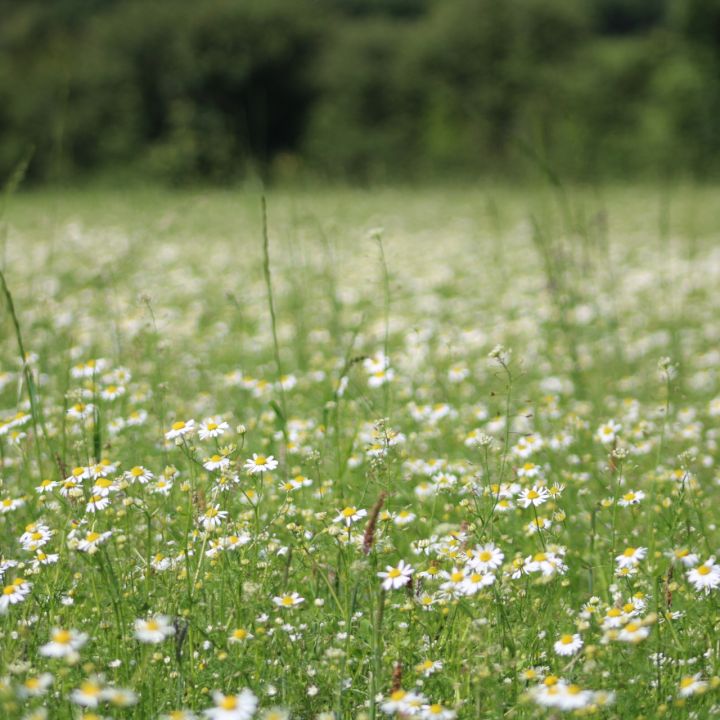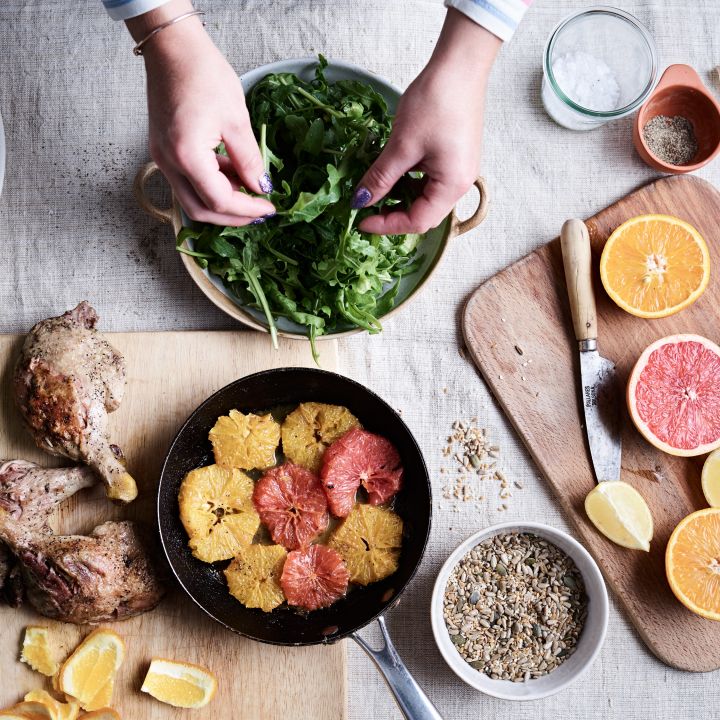Last year we published an article that delved into regenerative agriculture and its many similarities to organic. Fast forward a year, and the idea of nature-positive farming has firmly established itself within the farming community as the answer to our environmental woes. A Regenuary campaign led by The Ethical Butcher has gained traction in the media, which calls on the public to only buy food that has a positive impact on the planet, preferably from regenerative or organic farms where there is direct action being made to regenerate soil health.
The idea is simple, it is no longer enough to simply create a sustainable system, we must give back more to the land than what we take out. The mission must be to regenerate and restore. This widely applies to soil, building back soil fertility so it can do its magic work of sequestering carbon from the atmosphere. It is also about regenerating a culture, a lifestyle, a desire in people to eat real, nutritious food sourced directly from farms or producers they can trust. We need to move beyond simplistic animal-based vs plant-based narratives, and recognise that any food, be it plant-based or meat, can be produced in systems that have good, neutral or bad consequences for our environment.
Sound familiar? We are pleased that the message is breaking out into the mainstream. Organic farmers and bodies like The Soil Association have been campaigning for decades for nature-centric farming policy. The alternative (and antithesis) to nature-friendly farming is industrial production, factory farms and monoculture crops - draining the earth of its natural resources at an unsustainable rate, leading to a biodiversity crisis, soil degradation and worrying predictions for antibiotic-resistance. There is an optimism in the air as farmers across the country are tuning into the traditional farming methods used in the generations before us, utilising the processes that exist in nature, as felt at the recent Oxford Real Farming Conference – watch more here Oxford Real Farming - YouTube
And there is more to be pleased about. Just before Christmas, the Soil Association announced that following extensive lobbying efforts, we will finally see organic included within the recently announced Sustainable Farm Incentive Policy (SFI). We welcome DEFRA’s acknowledgement of the benefits that organic farming offers the wider environment – this work has resulted in organic farmers qualifying for the higher level payments available through the SFI’s soil standards. Organic’s inclusion as part of SFI is especially triumphant given the challenges the organic sector has faced since Brexit, and “shows how the Government cannot disregard the the evidenced merits of organic farming such as for biodiversity, animal welfare and healthy soils. Defra ministers have taken a brave stand with the announcement and given the sector something to work with.”* DEFRA have also agreed to explore the inclusion of a new organic standard in 2025 to provide an easy, holistic and accessible package for organic farmers.

The Soil Association will continue to campaign for change in the world, but we need some help from you too. Consumers are activists every time they spend their money - there is so much we can do with the power of our purchases and lifestyle choices.
- Eat less but better meat – treat meat as a luxury instead of an every day staple, enabling you to spend a little more on organic grass-fed meat that has a positive effect on climate change, as well as upholding the highest standards for animal welfare in the UK.
- Make small organic swaps – one of the easiest organic swaps is to organic dairy. Dairy is an incredibly nutritious food whose reputation has become somewhat murky in the last few years. The rise of alternative plant based milks has led to many consumers questioning the role of dairy in their diets. With the exception of course of genuine intolerances, milk, cheese and yoghurt can have wonderful benefits for our bodies. Dairy is the best source of calcium you can choose, and the protein within the dairy helps us absorb its calcium more efficiently. Dairy products are also high in vitamin B, vitamin A and iodine. The price difference is nominal for a huge jump in welfare standards for grass-fed dairy cattle, as well as the positive impact the grazing animals have on the soil health of our pastures.
- Eat more plants – we’re not talking about ultra-processed meat ‘alternatives’ currently being peddled by fast food chains and supermarkets. We’re talking about real fruit and vegetables, legumes, grains and pulses. Natural food containing the highest level of nutrients possible, before all that processing strips out the goodness. Even better choose organic, to ensure the food you are eating isn’t contaminated by pesticides. Think local by delighting in the changing seasons and the new tastes they bring, trust us – asparagus grown in the UK during the summer season is so much more delicious than asparagus imported from Peru during the winter months.
*Defra Finally Breaks Silence, Will the Sustainable Farming Incentive (SFI) deliver for organic? (soilassociation.org) by Adrian Steele, Organic Sector Development Advisor.


.jpg)



